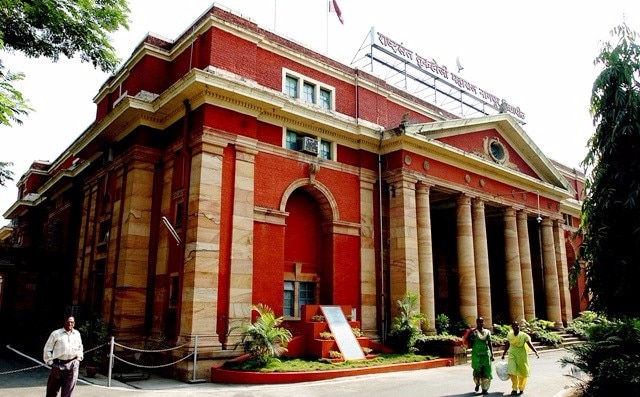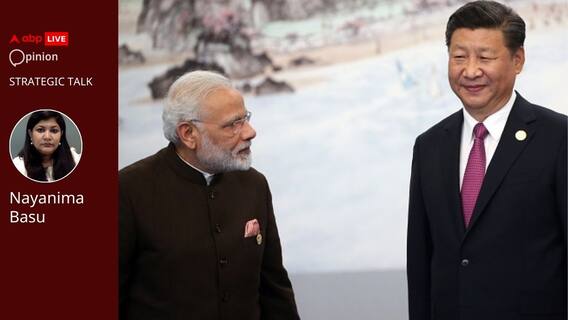Explorer
Advertisement

The Unreported: Witnessing a child's right to be born

There is something about reporting from Ground Zero. The pictures by the way-side are more often than not ugly, repulsive and depressing.
But that was not how I looked at journalism way back when I started. This particular 'Unreported' narrative was probably my first rude shock of the world outside my comfortable cocooned terra-firma. I had just finished covering a late evening cultural performance at Nagpur. It must have been a little after 9.30 pm. I kick-started my scooter and left for 'The Hitavada,' where I had very recently graduated from an intern journalist to a reporter. 'The Hitavada' has for long been the highest circulating English daily of central India. I remember that deadlines used to be stretched to breaking point to ensure the cutting edge when reporting the last possible event in the city.
I had to cross the Civil Lines area of the city to reach my office. There was something of a Dr Jekyll and Mr Hyde about this place. In daytime, it would bustle with the sweaty energy of multitudes who wanted to get their work done in the several lethargic Government establishments and offices strewn all over this place. But come night, the roads would be deserted; the light from the street lamps mostly shadowed by overgrown trees.
As offices shut shop, Civil Lines was returned to its residents. Sprawling bungalows of the nouveau and aspiring rich rubbed boundary walls with the decaying houses of old moneybags. But on the periphery, almost swept under the carpet, were slums like Mariyam Nagar. Civil Lines was more like someone caught between the filth and the filthy rich!
A landmark here was, and still is, the red-brick Nagpur University structure. The road was pretty wide but dark. Whatever little illumination here came from a yellow bulb hanging on a pan-chai thela. A few stragglers were gathered around it. But all of them were looking at the road.
A woman was squatting right in the middle. Another stood near her and a man stood at some distance from them, between the 'thela' and these two women. The man was saying something to the men near the 'thela.' My first impression was of two women in distress being troubled in some way by the man. So I applied the brake on my scooter and pulled over to the side.
I approached the two women giving the men a hard look just in case they were the cause of trouble. The woman who was standing seemed relieved to see me, another female. Her reply to my simple "Whats happening" was shocking. The woman squatting in the middle of the road was her heavily pregnant daughter in the throes of labour pain. The man at some distance was her husband. Both husband and wife were trying to seek help for their daughter who was now unable to take the pain and had simply given up and squatted on the road.
I sat down next to the mother-in-waiting to enquire how good or bad she was to move from the spot. Meanwhile, I gathered the simple, bleak story from her distressed mother. They lived in Gittikhadan, an area which was around six kilometres from this spot. The daughter was being taken to the Government Medical College which was another at least five kilometres ahead. When the daughter went into labour pain at home, the parents had no money to even hire a rickshaw. The daughter along with her parents, had walked the six kilometres in labour and had intended to walk the rest of five kilometres ahead too, had the pain not become so intense.
With only a two-wheeler and no public transport in sight, I felt just as helpless as the parents. A few people did cross us, but again they were mostly on two-wheelers. I felt some relief as I saw a familiar face approach. It was Sangita Mahajan, but again on a two-wheeler. Sangita, a fine photographer with The Indian Express and Loksatta, was also returning from the same programme as me.
Sangita quickly took in the whole scene. She has been a Left-wing activist and had the ability to think and act fast. As I quickly narrated to her what was happening, our minds without even discussing a plan, seemed to think as one. Sangita quickly managed to get a piece of cloth and asked the parents to hold it as a cover for the girl who had reached a stage where her contractions were very obviously very fast in coming.
All the men who had halted to see what was going on were quickly converted by Sangita into a human shield for the young girl's delivery. We asked the men to turn their backs on the squatting girl and form a circle protecting her, but not seeing her. Sangita then herself got onto the job of delivering the baby right there in the middle of the road.
On my part, I took up the task of trying to stop four-wheelers so that the trio could be quickly ferried to the nearest hospital. It was a tough task. I did manage to flag down two four-wheelers, but on hearing what was happening, one fled quickly and the other left after muttering some flimsy excuse. That was when I realised that the task on hand called for a tough stance.
The next four-wheeler was a brand new Maruti Omni. This time, I virtually blocked the driver from moving ahead. His family was also in the car with him. I explained to him how serious the situation was. "I am in a hurry. I have to go, any other time I would have surely helped," was his reply. But experience had wisened me. I think I almost sounded menacing as I plonked myself in front of the car in a manner which did not allow him to move even an inch.
"It is a brand new car. It will get dirty," he finally came out with the true reason. I understood his hesitation but I was not ready to lose him. I played tough and I could easily read the expressions fleeting across his face. "What if this girl really does not move and give way to my car? How will I escape? What if she or the people around damage my car if I try to flee?" His face spoke volumes.
I tried to make the decision easier for him. There was a hospital by the name of Lata Mangeshkar less than a kilometre ahead. I told him he need not take them all the way to the Government Medical College and could just drop them at Lata Mangeshkar. This seemed to turn the scales and finally he relented.
I hurriedly turned back hoping to quickly put the trio in the car. But a different chapter was being written on the road right in front of the Nagpur University. The baby was almost there. With our limited knowledge and experience, there was no way the woman could now be lifted into the van. The men were dutifully making the cover with their backs turned. It must have been only a few moments, but I did not breathe for what seemed like an eternity. Sangita finally emerged triumphant with a baby boy in her hands.
I will never forget that face. Even in the dim light, this child of fate was like bright optimism. I can recall that face as though it happened only yesterday, the face which almost seemed to say, look I have won! The surrounding jubilation was short-lived. With the umblical chord still intact, we bundled the four into the reluctant but waiting van.
Once they were gone, the enormity of the whole incident sunk in. I was so affected by the incident that after getting back to office, I did not feel like discussing it with anyone. When I could actually talk about it some three days later, my surprised Editor, Vijay Phanshikar, asked me to file the story. But I told him that I myself felt so much part of the narrative that I was not up to filing it. Understanding my reluctance, he did not insist. It took some years of Ground Zero reporting to learn that as I was human, there would always be stories which would affect me deeply. Some stories might continue to haunt me, at times some might move me to the level of activism, and on rare occasions, I may even be moved enough to take sides.
At that time,I thought this entire episode was a reflection of the chasm between the rich and the poor. But as stories of varied hues were painted on my reporting canvas in the following years, I realised that there were loads of such chasms. The chasm between welfare schemes and malnourished children of Melghat with their pot-bellies; the chasm between alcoholic slums and dreams of the hard-working mothers living in them; the chasm between a debt-ridden farmer and his high-value land with no buyers in Vidarbha; the chasm between the law and the powerful protectors of lawlessness; the chasm between youngsters who take up guns early on and the road of no-return in Maoist land; the chasm between smart cities and insincere city fathers; the chasm between the idea of nationalism and our dreams and aspirations as individuals all around. The list is endless.
The baby born that night should be turning into an adult this year. But the intervening 18 years have done little to change the scenario. Even as this baby fought his battle within the womb, some people had fled, some were reluctant, some were merely curious but some had really made a difference.
That he was born on the road could be the result of a societal chasm, but I would like to carry with me forever the memory of his face in the dim light, that of bright optimism! The face which said, look I have won! It was a tribute to those who really made a difference, and not just that day...
(Sarita Kaushik is a journalist with ABP News)
Follow Blog News on abp LIVE for more latest stories and trending topics. Watch breaking news and top headlines online on abp News LIVE TV
View More
Blog
 “ High Time India Settled Border With China. New Delhi Can’t Afford Another Sumdorong Chu
“ High Time India Settled Border With China. New Delhi Can’t Afford Another Sumdorong Chu

Nayanima Basu
Advertisement
Advertisement
Advertisement
Advertisement
Trending News

for smartphones
and tablets
and tablets
























